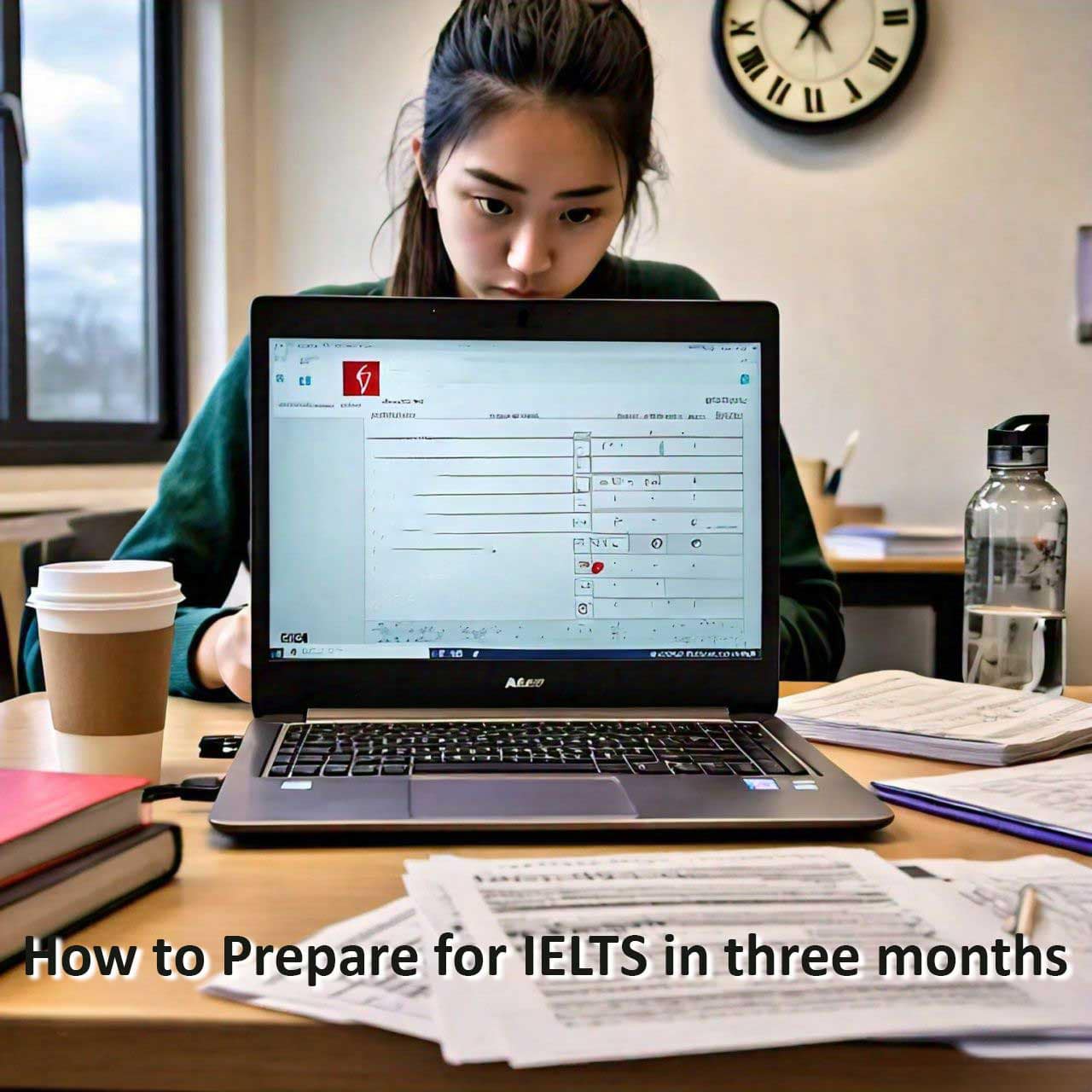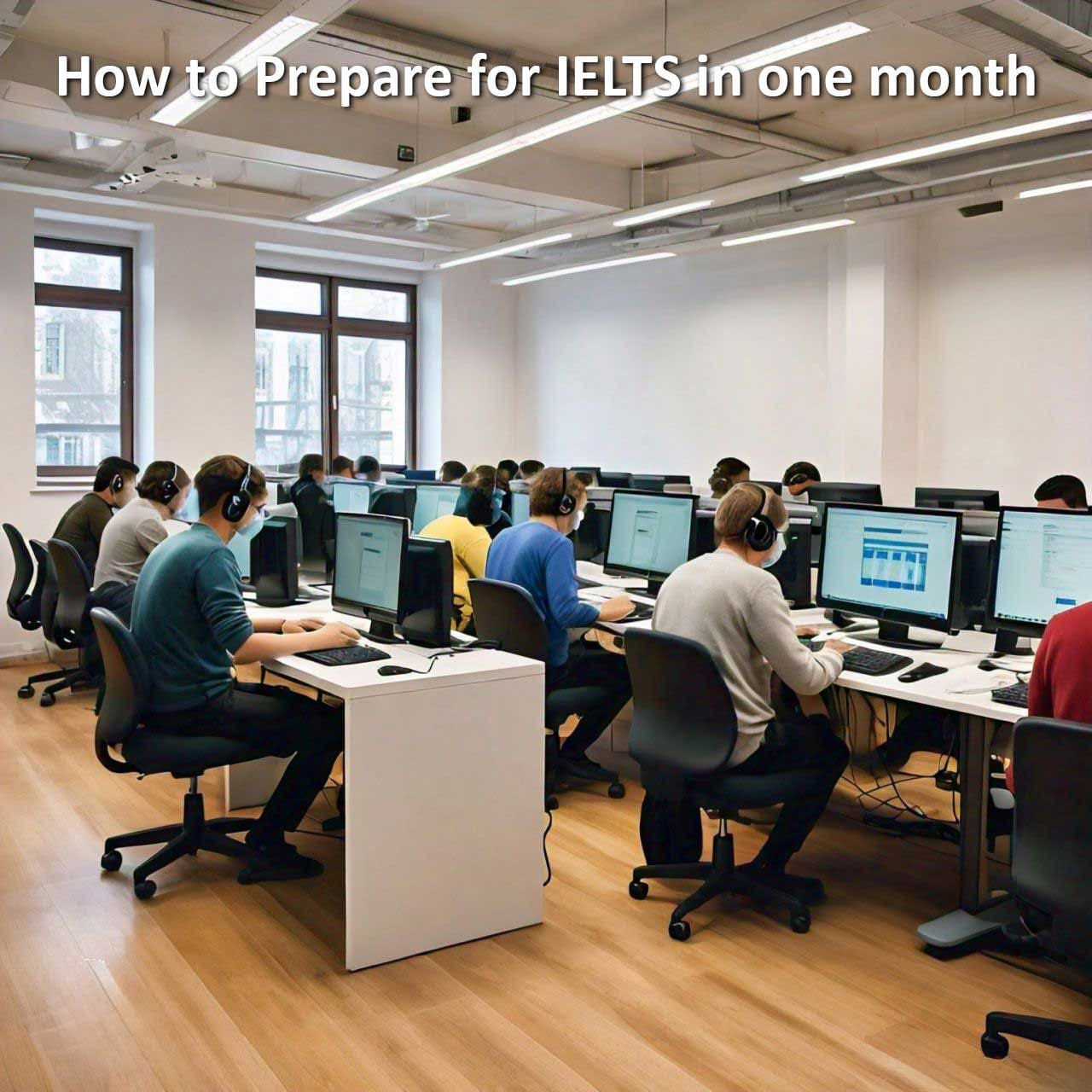Preparing for the IELTS in two weeks may sound daunting, but it’s entirely achievable with the right plan, focus, and resources. Whether you’re aiming for a specific band score to meet university requirements or pass a visa language test, this guide will help you make the most of your limited preparation time.
Here’s a step-by-step guide to prepare for IELTS in two weeks and achieve the results you need.

Table of Contents
Day 1: Understand the IELTS Exam Format
Before diving into practice, familiarize yourself with the test structure:
1.1 The Four Sections of IELTS
- Listening: 40 questions, 30 minutes + 10 minutes to transfer answers.
- Reading: 40 questions, 60 minutes.
- Writing: Two tasks, 60 minutes.
- Speaking: A face-to-face interview, 11–14 minutes.
There are two types of IELTS exams: Academic (for education purposes) and General Training (for immigration or work). Ensure you’re preparing for the correct version.
1.2 Key Scoring Criteria
Understanding how the IELTS is scored can give you an edge. For instance:
- In Writing and Speaking, grammar, vocabulary, coherence, and task achievement are essential.
- In Listening and Reading, accuracy is key—spelling errors or incorrect answers result in lost points.
Day 2-4: Focus on Listening and Reading
2.1 Improve Listening Skills
The Listening section includes conversations and monologues. To prepare effectively:
- Practice with Mock Tests: Use authentic materials like those on IELTS.org.
- Expose Yourself to Native Speech: Watch English TV shows, listen to podcasts like BBC Radio, or TED Talks.
- Take Notes: Practice identifying keywords while listening to improve your ability to multitask.
For example, in Section 2 of the Listening test, you may hear a map description. Practicing this skill will help you quickly locate information.
2.2 Strengthen Reading Skills
The Reading section requires speed and comprehension. Here’s how to prepare:
- Skim and Scan: Learn to quickly locate main ideas, specific details, and keywords.
- Practice True/False/Not Given: These questions can be tricky, so practice identifying whether the information is directly stated, implied, or not mentioned at all.
- Use Time Wisely: Spend about 20 minutes per passage. If you get stuck, move on and come back later.
Day 5-7: Master Writing Skills
The Writing section often intimidates candidates, but with focused practice, you can excel.
3.1 Writing Task 1 (Academic)
This task involves describing data (e.g., graphs, charts, or maps). Key tips:
- Use formal language.
- Organize your answer: Introduction, overview, key details.
- Practice paraphrasing the question.
Example:
Original: “The chart shows the population of three cities in 2020.”
Paraphrase: “The chart illustrates the population figures for three cities in the year 2020.”
3.2 Writing Task 2
For both Academic and General Training, this task requires writing an essay. Follow these steps:
- Plan Your Essay: Spend 5 minutes outlining ideas.
- Use a Clear Structure: Introduction, body paragraphs, conclusion.
- Practice Common Topics: Common themes include education, technology, and health.
Example Question:
“Some people believe children should learn a foreign language early. Do you agree or disagree?”
Practice brainstorming and writing essays within the 40-minute limit.
Day 8-10: Hone Speaking Skills
4.1 Understand the Speaking Test Format
- Part 1: General questions about yourself (4-5 minutes).
- Part 2: A short speech based on a cue card (1-2 minutes).
- Part 3: Discussion on abstract topics related to Part 2 (4-5 minutes).
4.2 Improve Fluency and Pronunciation
- Practice Daily: Speak English regularly, even if it’s with a friend or a language partner. Platforms like iTalki can help you find a tutor.
- Record Yourself: Analyze your pronunciation and clarity.
- Expand Answers: Avoid short responses. For instance, instead of saying “Yes, I like reading,” say, “Yes, I enjoy reading because it helps me relax and gain knowledge about different topics.”
4.3 Practice Common Topics
Focus on topics like hobbies, travel, education, and technology. Example Part 2 cue card:
“Describe a book you recently read. Include what it was about and why you liked it.”
Day 11-13: Full-Length Mock Tests
5.1 Why Take Mock Tests?
Mock tests are your best tool to assess progress and identify weak areas. They also help you get comfortable with the test format and timing.
5.2 Simulate Test Conditions
- Take the mock test in one sitting.
- Use a timer to follow the exact duration of each section.
- Analyze your mistakes and review them carefully.
Some great platforms for mock tests include:
- IELTS.org for official tests.
- British Council for additional practice materials.
Day 14: Final Review and Relaxation
6.1 Focus on Weak Areas
Use your mock test results to target specific weaknesses. For example:
- If Listening is your weak spot, practice focusing on keywords and multitasking.
- If Writing is a challenge, review sample essays and practice under timed conditions.
6.2 Prepare for Test Day
- Pack your essentials (ID, test confirmation, stationery).
- Arrive at the test center early.
- Stay calm and confident—your preparation has set you up for success.
Success Stories: Preparing for IELTS in Two Weeks
Example 1: Priya from India
Priya needed a 7.0 band score for university admission. With only two weeks to prepare, she focused on Writing and Speaking, her weakest areas. She practiced with a tutor daily and completed three mock tests. On test day, she achieved a 7.5, exceeding her expectations.
Example 2: James from Nigeria
James had just 14 days before his General Training IELTS exam. He dedicated his mornings to Reading and Listening and spent evenings practicing Speaking with a friend. By taking one mock test every three days, he identified and corrected his mistakes. He scored an 8.0 overall just by preparing for IELTS in two weeks.
Conclusion
Preparing for IELTS in two weeks is intense but entirely possible with focus and commitment. By understanding the test format, practicing consistently, and using high-quality resources, you can achieve your target band score in a short time.
Remember, every minute counts during this preparation period. Follow this guide, stay disciplined, and trust in your ability to succeed.
If you still have time to prepare for IELTS. You may be interested in our post in preparing for IELTS in One month, or Preparing for IELTS in 3 months.



